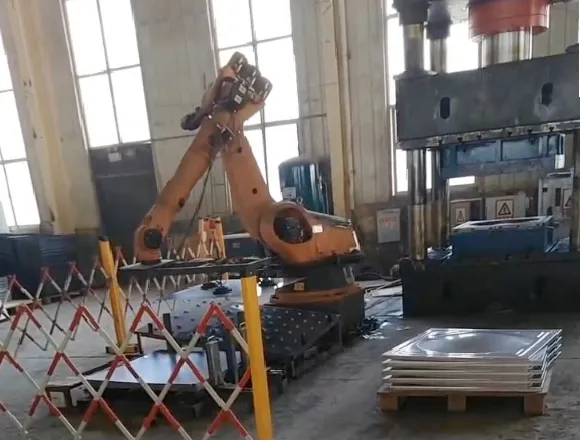loading...
- No. 9, Xingyuan South Street, Dongwaihuan Road, Zaoqiang County, Hengshui, Hebei, China
- admin@zjcomposites.com
- +86 15097380338
- Welcome to visit our website!
hard water treatment
Understanding Hard Water Treatment A Comprehensive Guide
Hard water is a common issue faced by many households around the world. It contains high levels of minerals, primarily calcium and magnesium, which can lead to various problems ranging from limescale buildup in plumbing to reduced efficiency in household appliances. Understanding hard water and its treatment options is essential for maintaining a healthy and efficient home environment.
What is Hard Water?
Hard water is classified based on the concentration of dissolved minerals. Water hardness is typically measured in parts per million (ppm) or grains per gallon (gpg). Generally, water containing more than 120 ppm of calcium and magnesium is considered hard. Hard water is not harmful to health; however, it can cause several practical issues that inconvenience daily life.
Effects of Hard Water
1. Scale Buildup One of the most noticeable effects of hard water is the formation of limescale on faucets, showerheads, and inside appliances such as dishwashers and water heaters. This buildup can significantly reduce the lifespan and efficiency of these devices, leading to costly repairs and replacements.
2. Ineffective Cleaning Hard water can hinder soap's effectiveness, making it difficult to form lather. This results in soap scum and makes laundry less effective, leading to dull cloth and a residue on washed dishes.
3. Skin and Hair Issues Bathing in hard water can leave skin feeling dry and irritated, and it often makes hair appear dull and lifeless. The minerals can strip away natural oils, exacerbating these issues.
4. Spotting and Staining When hard water dries, it can leave mineral deposits on glassware, dishes, and fixtures, creating unsightly spots that are difficult to remove.
Methods of Hard Water Treatment
hard water treatment

Fortunately, several methods are available for treating hard water, allowing homeowners to choose the most appropriate solution for their specific needs.
1. Water Softeners The most common solution for hard water treatment is the installation of a water softener. This system typically uses an ion exchange process where hard water passes through resin beads coated with sodium ions. As water flows through, calcium and magnesium ions are exchanged for sodium ions, effectively softening the water. Water softeners can significantly reduce limescale buildup and improve the quality of water used for washing and bathing.
2. Reverse Osmosis Another effective water treatment method is reverse osmosis (RO). This process uses a semi-permeable membrane to remove various contaminants, including minerals that cause hardness. While this system is primarily used for drinking water purification, it can also assist in managing hard water conditions when paired with other treatment methods.
3. Magnetic Water Conditioning Some homeowners opt for magnetic water conditioners, which claim to reduce water hardness without the need for chemicals or salt. These devices generate a magnetic field that is said to change the properties of minerals in water, making them less likely to adhere to surfaces. However, scientific evidence supporting the effectiveness of this method is limited.
4. Chemical Descalers Chemical descalers are products that can be added to water systems to dissolve limescale buildup and prevent new deposits from forming. While effective, they may not address the hardness of the water itself.
Choosing the Right Hard Water Treatment
Selecting the appropriate method for hard water treatment depends on several factors, including water hardness level, budget, and specific household needs. Homeowners should consider having their water tested for hardness to determine the best treatment approach.
When investing in a water treatment system, it’s also essential to factor in maintenance costs and the environmental impact. For instance, traditional water softeners require periodic salt replenishment, which can have implications for water usage and disposal.
Conclusion
Hard water is an issue that affects many households, leading to various inconveniences and potential damage to plumbing and appliances. By understanding hard water and exploring effective treatment options, homeowners can enhance their water quality, improve their quality of life, and extend the longevity of their household systems. Ultimately, investing in hard water treatment can lead to significant long-term benefits, making it a wise choice for homeowners facing this common challenge.
-
The Rise of FRP Profiles: Strong, Lightweight, and Built to LastNewsJul.14,2025
-
SMC Panel Tanks: A Modern Water Storage Solution for All EnvironmentsNewsJul.14,2025
-
GRP Grating: A Modern Solution for Safe and Durable Access SystemsNewsJul.14,2025
-
Galvanized Steel Water Tanks: Durable, Reliable, and Ready for UseNewsJul.14,2025
-
FRP Mini Mesh Grating: The Safer, Smarter Flooring SolutionNewsJul.14,2025
-
Exploring FRP Vessels: Durable Solutions for Modern Fluid HandlingNewsJul.14,2025
-
GRP Structures: The Future of Lightweight, High-Performance EngineeringNewsJun.20,2025
